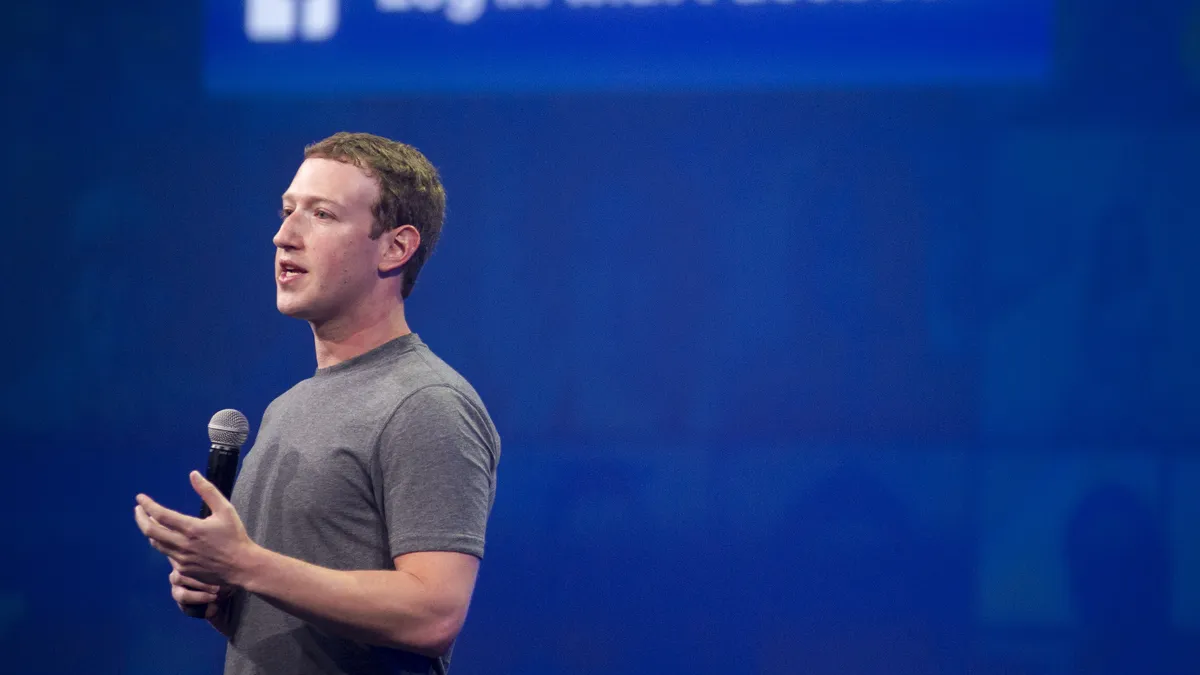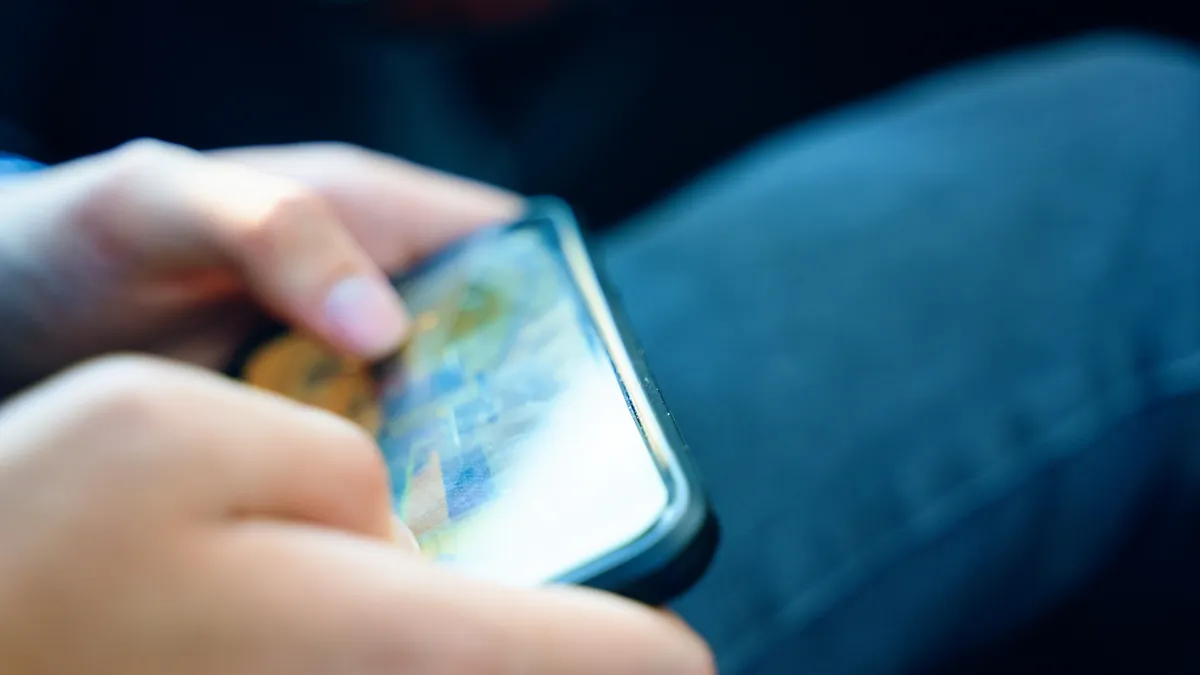A dizzying number of marketers have in recent days announced plans to pause advertising on Facebook and other social media sites, as civil rights groups ratchet up the pressure on platforms to curb hate speech. The snowball effect mirrors past pullbacks against digital platforms, namely the YouTube "adpocalypse" from 2017. However, the current wave arrives amid a unique confluence of global events, including a pandemic and civil rights movement, that could provide greater leverage for change — assuming marketers can commit to resetting their agendas beyond a temporary spending freeze.
"[Advertisers] don't want their brands next to hate language, but this takes it a level further because of the social activism component," Nancy Smith, president and CEO of Analytic Partners, told Marketing Dive in an interview. "I do think of this as being more of a watershed moment because of that, versus the YouTube challenges several years ago which were really about brand safety."
Indeed, many marketers are boycotting Facebook at the behest of civil rights organizations like the National Association for the Advancement of Colored People and Anti-Defamation League, which have propped up a #StopHateforProfit campaign that earlier this week topped 100 signees and lists businesses both large and small. Some companies, such as Starbucks and Coca-Cola, are taking their actions a step further, enacting freezes on all social media, not just Facebook.
Helping to broaden the scope of the movement was Unilever, which on Friday became the largest advertiser to extend its pullback past Facebook, announcing it would stop all advertising on Twitter, Facebook and Facebook's Instagram app until "at least" the end of 2020. The "at least" portion of Unilever's statement represented an escalation of the stakes, stretching well beyond the one-month pauses others had at that point pledged to take. The phrasing also suggests that one of the world's top advertisers by media spend has considerably realigned its budgetary priorities, as it intends to retain its planned investments for 2020 by reallocating social media dollars to other channels.
"Unilever really put a lot of chips on the table with their commitment to withdrawing advertising, and being one of the top media spenders on social media, that absolutely will impact Facebook and Twitter's bottom line," Jesisca Liu, a senior analyst at Forrester Research, told Marketing Dive. "They are committing to what they think is feasible for their company and their business. It may not be the same for The North Face."
While hitting the breaks on paid social campaigns is the right first step, Liu cautioned that it only impacts one part of an ecosystem with myriad functions upon which advertisers rely, including customer service, community engagement and ambassadors like influencers. Starbucks, which hasn't officially joined the #StopHateForProfit boycott, will continue to post its social media channels without paid promotion, for example.
"Advertising is just one piece or one percentage of what companies do on social media," Liu said. "From the advertising side, if [brands] want true, lasting impact, they have to go a little bit deeper."
A pivotal opportunity
Liu reinforced that the current moment is still remarkable, not just for how many advertisers are signing on, but also for which ones are stepping up. The diversity and number of marketers participating speaks to how the distinct social climate and focus on groups like Black Lives Matter are motivating even stodgier brands to fight for more substantial change.
"The combination of a pandemic and the civil rights movement has really pushed the issue ... companies and consumers are pausing to reassess their values and their priorities," Liu said. "This does feel different in the greater cultural context or societal context.
"It's not just very traditional, values-based companies like Patagonia," she added.
More comprehensive boycotts like Unilever's could become more common, Smith said. Unilever's ambitious targets potentially helped set the tone for others: The Clorox Company, a rival in the packaged goods category, said Monday that it would stop advertising on Facebook through December, another instance of a marketer committing for the calendar year.
At the same time, companies were already reconsidering their marketing budgets for 2020 due to economic pressures associated with the new coronavirus. Coke, for example, previously pulled back ad spending at the start of the pandemic, though it's recently restarted some of it marketing with a focus on new channels like livestreaming.
That the current outpouring of spending freezes is occurring right at the close of Q2, and as marketers begin to set their campaign plans and media budgets for the rest of the year, is no coincidence, according to Smith.
"The implication of taking the dollars from Facebook is there will be other avenues to spend," Smith said, noting that categories like retail could shift those dollars toward reimagining store concepts better-suited for warding off the coronavirus. "The rest of this year, from a consumer confidence standpoint and with spending, is likely going to be impacted."
Turning budgetary cuts or broader media reassessments that were already in the works into a wedge to champion a social cause could represent a win-win for marketers, all at a time when brands are expected to play a larger role in improving society.
"Coming out with that strong stance really aligns the brand with a purpose," Smith said. "It's an election year as well, so all eyes are on brands and consumers are looking to the brands that they love to serve, not just to sell."
That's not to say it's a cynical strategy. Many brands for years have made veiled pushes for Facebook and other social media sites to change their policies, but have had neither the momentum nor backing of a broader social justice movement to fortify their cause.
"If these companies had a desire to do this prior, they didn't have a) the catalyst or b) the safety in numbers," Liu said. "It was really hard to take that stance when what was at stake really was their own bottom lines. We're dealing with two unique variables at the moment."
No Garden of Eden
Some analysts, including Brent Thill of Jeffries, remain skeptical that the boycotts will do substantial damage to the financial prospects of a company like Facebook, as reported in Fortune.
Yet, even as a symbolic gesture, social media spending freezes have produced incremental results. Facebook on Friday said it would flag all newsworthy posts that skirt its rules, including those from President Trump. The change-up represents the type of content policing that the company and CEO Mark Zuckerberg have long resisted enforcing, a stubbornness that's drawn mounting criticism as topics like hate speech enter the spotlight. The policy update came after Unilever's statement earlier Friday afternoon sent Facebook shares down 8%, wiping $50 billion from its market valuation, according to the Associated Press. Earlier this week, Facebook announced it would undergo an external audit with the Media Rating Council to review its policies on hate speech, but some civil rights groups view the step as a half measure, according to Ad Age.
As other deep-pocketed companies like Coke, Clorox, Starbucks, Ford, HP, Microsoft and Adidas join the fray, the numbers could start to add up. Verizon, which was the largest advertiser to boycott Facebook prior to Unilever, spent $22.9 million on Facebook advertising last year, according to Pathmatics data shared with Marketing Dive. Unilever spent $42.2 million on the platform in 2019. Procter & Gamble, which spends even more on media than Unilever, last week said it is reviewing where it spends its dollars, and will consider cutting off platforms and outlets that circulate content that is "hateful, denigrating or discriminatory." At press time, P&G brands were still advertising on Facebook.
Facebook made $17.7 billion in advertising revenue last quarter alone, as noted in Bloomberg, and has a deep well of smaller businesses to rely on if the Coke's and Unilever's of the world tap out. The tone at the moment is one of cautious optimism, Forrester's Liu said, with the recognition that marketers might need to buckle down for the long haul or even take a more heavy-handed approach than they're already using.
"This is progress and good for change in the social networks, but it's not going to be an overnight Garden of Eden on Facebook by the end of July," Liu said.























